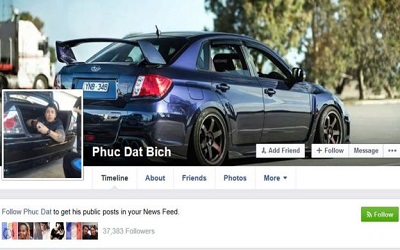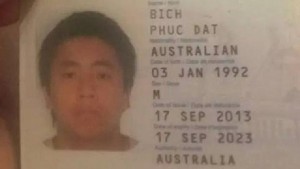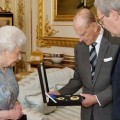相信大家早已在朋友圈知晓了这位越南小哥吧!一夜之间登上各国头条并获得数万粉丝!逆天名字大战脸书的剧情着实让人捧腹不止,可事情却远没有你想象的那么简单!墨尔本文波雅思通过BBC NEWS带你深入了解事件主角的真实想法和相关评论,同时学习其中层出不穷的褒义和贬义表达。
An Australian calling himself Phuc Dat Bich, who made global headlines after saying he was fighting to use his real name on Facebook, admits it was hoax(骗局,恶作剧).
“Mr Bich” said on Facebook his real name was “Joe Carr” (or perhaps joker).
BBC太逗,小编已笑翻
He said what had started as a joke between friends “became a prank (恶作剧)that made a fool out of the media(让媒体出丑)”.
But he said it also brought out the best in people and gave encouragement to people with “truly interesting and idiosyncratic(特殊的,高分词) names”.
The hoaxer(骗子) is of Vietnamese origin. His name when properly pronounced in Vietnamese, which is a tonal language(声调语言), sounds like “Phoo Da Bi”.
好吧,这个越南发音也好不到哪去。。
Facebook have not responded to BBC requests for comment.
Phooled by a Joe Carr – Nga Pham, BBC Vietnamese
I have to admit I fell for the prank by Mr Bich Phuc Joe, or whoever he is.
BBC的越南女记者发表评论
In the newsroom, dealing day-in-day-out with news that’s often about disasters, both natural and man-made, the story of an unfortunately named person who thanked the community for their support seemed appealing(吸引人的).
Being Vietnamese, I knew that Bich was not a common surname (but not impossible) in Vietnam, but many immigrants change their names or get them in the wrong order when registering in their new countries. Vietnamese names are highly confusing to say the least.
After the story came out on the BBC News website, I received many emails from readers saying it had made them laugh – I hope they are still laughing now, even though we’ve all been hoaxed(我们都被耍了).
The Facebook user, whose profile still shows him as Phuc Dat Bich, had said back in January that he found it “highly irritating(气人的) the fact that nobody seems to believe me when I say that my full legal name is how you see it”.
He posted a picture of his passport showing his name, and said he had had his Facebook account “shut down multiple times”. Posts under that name date back to at least 2014.
‘Levity (轻浮多变)and humanity’
The story was picked up last week – first by social media then by the world’s media, including by the BBC. (注意并列时不要漏了by)
Earlier this week, he even went as far as thanking his supporters, saying he hoped he had “played a part in brightening your days“.
But in a surprise on Wednesday he said: “Do you remember the story; The boy who cried wolf?
“Imagine that boy grew up into a mischievous(淘气爱恶作剧的,高分词) man with 21st Century technology at his finger tips(指尖上的,随手可得).
“What started as a joke between friends, became a prank that made a fool out of the media.
But he also said Facebook “needs to understand that it is utterly(全然地) impossible to legitimise a place where there will always be pranksters and tricksters(恶搞的人和骗子)”.
Mr Bich/Carr said his “ordeal” (痛苦的经验)had taught him “not to trust the credibility of the media” and that it “goes to show that an average joe like myself can con(欺诈) the biggest news sources with ease(毫不费力地,习语搭配)”.
But he also praised the response to his prank saying it “didn’t bring out the anger and darkness that we often see on the internet, but it brought a levity and humanity in a time we need it most.”
It is not clear if he photoshopped his passport. Physically altering (物理上修改)a valid passport would be illegal.
也就是说,PS护照并不犯法咯。
大家就当开心地被这个神作般的恶作剧耍了一次吧!
更多精彩内容尽在墨尔本文波雅思。






